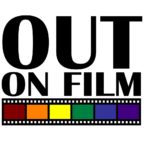
FilmFreeway vs. Withoutabox: The war rages on
Twenty years ago, entering and organizing film festivals was no easy task. All submissions were handled offline and if filmmakers wanted a shot at getting in, they’d have to search through lists of events and their criteria, fill in paper forms, send a VHS of their film through the post, and wait to hear back.
It was a slow and tedious process, which is why when Withoutabox came along, everything changed. Serving as a new online service, the problem was solved and now filmmakers could submit to multiple festivals while only having to upload details once. Users could search and filter festivals from all over the world, automatically confirm criteria eligibility, and apply & pay without any paper forms necessary.
At the time this was revolutionary and after proving its popularity, in 2008 Withoutabox was bought by IMDb for $3 million. However, the buyout didn’t work in the firm’s favor and Withoutabox has since drawn criticism for its takeover by IMDb – owned in turn by Amazon – with filmmakers and festivals alike accusing the site of excessive charges. Festivals that accepted free submissions were charged an upfront fee of $2,000, while those charging were made to pay a commission of 18% as well as an upfront fee of $500 to $1,500.
Even before the buyout, the cracks had started to show, with users claiming the site was not user-friendly. However, no one dared challenge them as in 2001, Withoutabox was granted a patent on using the internet to administer film festival submissions. This meant that anyone who tried to set up a rival site would have to go against Amazon, which of course everyone was too scared to do. That is, until FilmFreeway came along.
Since its inception in 2014, FilmFreeway has made its purpose clear: an alternative for filmmakers and film festival organizers alike who have grown disgruntled with Withoutabox. Providing a more user-friendly and cost effective submission and screener system, FilmFreeway has quickly turned into the moviemaker’s choice, unafraid of the Withoutabox patent due to its Canadian location and its design that doesn’t infringe the terms and conditions. The database has seen rapid growth over the past four years, now featuring over 6,000 film festivals and providing access to over 500,000 filmmakers and artists worldwide.
In short, FilmFreeway has truly proved itself to be the underdog in this David vs. Goliath story. Film Daily were stoked to take a break from the newsroom to sit down with FilmFreeway’s founder Zachary Jones to find out more about this unstoppable force and where it’s headed.
Film Daily: When you started back in 2014, did you have any idea FilmFreeway would blow up to where it is now?
Zachary Jones: When we set out to build FilmFreeway, our goal was to completely reinvent film festival submissions by creating a vastly superior product and user experience. The mandate was that FilmFreeway had to be at least ten times better than the competition. Next, we’d offer our product completely free to filmmakers and at a fraction of the price for festivals. And finally, we’d back it up with nothing less than world-class customer support. We knew that once filmmakers and festivals gave FilmFreeway a try, they were going to fall in love. But no, we never imagined that we would be embraced by the community this fast and to this extent.
Why do you think FilmFreeway has enjoyed such success?
First, I think the quality of the user experience that FilmFreeway provides is what really sets us apart from anything else out there. FilmFreeway is the world’s #1 submission site across all top metrics including global web traffic, total festivals, Oscar-accredited festivals, and daily active users. This year, all three Oscar-winning short films were made by FilmFreeway filmmakers. There’s no way we would have achieved all this in such a short time if our product was anything less than the best in the world.
We never stop working to get better and we never will. Our goal is to continually improve our service by at least 10% every week. Over time, that ethos and approach to our work compounds and our customers enjoy the benefits. Next, we have a genuine respect for our users that they can sense when they interact with our team in any capacity at all. That represents a radical departure from how they’ve been treated by the former leader in this space for years. Customers appreciate that, and that’s how we’ve been able to earn the loyalty and word-of-mouth goodwill from so many users all over the world.
With regards to improving your service week by week, can you discuss any upcoming new features or projects you’ve got planned for your customers?
Last month we rolled our new Filmmaker Profiles (an example of which you can see here). It all started when we asked Twitter, “What if there was an alternative to IMDbPro that was 100% free and you had complete control over all the information in your profile?” Immediately we were overwhelmed with replies, DM’s and emails begging us to make one. Turns out people really, really dislike IMDb. So we got to work making them an alternative.
Now filmmakers can create profiles to beautifully showcase their work, and unlike IMDbPro, we gave them complete control over their information, their privacy settings, and made it all 100% free. That’s how we do it and that’s why filmmakers love us. We’ve got some more awesome stuff in the works now; there’s always something in the oven. All we do is think of ways we can make things better for filmmakers and festivals.
So how about your own professional background – how did you come to create FilmFreeway?
I’m a web developer, technology enthusiast, and film fan. Our team at FilmFreeway is comprised of super-talented engineers, designers, and customer support staff who have a true passion for film. FilmFreeway was created to cure a plague that was slowly killing independent film. That plague was Withoutabox.
When we learned that an entire industry was being subjected to brutally unfair business practices and being forced to use quite literally one of the worst websites we had ever seen, we knew we had a golden opportunity to build an awesome product and at the same time liberate an entire industry from the clutches of a comically greedy and terribly inept corporate bully. Knowing that we were fighting against a horribly unethical company and also saving filmmakers and festivals tons of money and frustration made the mission of building FilmFreeway fun and gave it all a sense of purpose at the same time.
Speaking of Withoutabox, could we talk a bit about your marketing technique? A lot of it is heavily focused on comparing your strengths to your competitor – was this something you set out to do from the start?
Absolutely. Look, Withoutabox is one of the most evil companies we’ve ever seen. Before we arrived, they were charging filmmakers $3 a pop for online submissions. $3 each! And that was for laughably bad standard-deaf online screeners that played in a tiny little pop-up window and barely even worked. This was not 1997, this was 2014!
They were also charging festivals nearly 20% commissions, forcing them to purchase mandatory marketing packages for thousands of dollars, charging free festivals thousands of dollars to list, forcing festivals to create absurd Withoutabox deadlines, and mandating a shady “discount” scheme whereby Withoutabox kept an additional $5 to $15 on every submission and charged the filmmakers to be eligible. Basically just gouging festivals and filmmakers at every single turn. These are independent artists struggling to make films on a shoestring budget and festival organizers working their tails off to throw films festivals for (more often than not) zero financial return and for nothing more than the love of independent film. For more than 15 years Withoutabox demonstrated they have no qualms treating this community like their own personal ATM.
What effect did this have on the film festival industry?
The bigger problem with that is filmmakers and festivals had no other choice. And when other startups launched to try to take them on, Withoutabox threatened them with litigation and even sent their own customers sternly-worded warnings that if they used any other service, they would have their accounts terminated. They bullied several would-be competitors right out of the market, forcing them to close shop. They did everything they could to protect their illegal monopoly. In fact, it took a formal investigation by the Federal Trade Commission to get them to scale back their behavior and finally change their terms to allow festivals to use other providers. The United States government actually had to intervene!
The sad part is that, over many years, they caused great harm to indie film by the way they wielded their power in such a predatory manner. Festivals were forced to artificially raise their entry fee to afford Withoutabox’s exorbitant fees, making it even less affordable to submit to festivals. Many festivals that could not afford their fees even had to shut down. I can’t tell you how many emails we’ve received from festivals saying that had FilmFreeway not come along, they would have had to shut down, or that thanks to FilmFreeway they can afford to re-open their festival or keep it running. We even had a festival announce publicly that thanks to FilmFreeway, they have lowered all their entry fees so they can pass the savings back to filmmakers. I can’t tell you how rewarding that feels.
And this is why so many film festival organizers and filmmakers dropped Withoutabox to join FilmFreeway.
It’s a mass exodus. Festivals have been dropping Withoutabox and switching to FilmFreeway in droves. The reason is that using Withoutabox is like bashing your own head into a wall. It’s truly a miserable experience for all involved. And now it’s simply not worth it anymore. Festivals are posting on social media that they are receiving anywhere from ten to twenty times the submissions on FilmFreeway than they are on Withoutabox. One festival tweeted that after their first deadline, the submission numbers were 12 from Withoutabox compared to 272 from FilmFreeway.
THIS is why Withoutabox resorts to paying some festivals big $$$ to not use @FilmFreeway. Because when filmmakers have a choice it's 272 to 12! ??❤️ pic.twitter.com/50K89kjeAU
— FilmFreeway (@FilmFreeway) March 9, 2018
What would you say about Withoutabox and how it stays in business?
Well, thanks to some amazing investigative reporting by Stephen Follows, it’s been revealed that Withoutabox has been secretly paying some festivals to use their service and not use FilmFreeway. Of course, in true Withoutabox style, even these deals are bound by strict non-disclosure clauses – that’s what they’ve resorted to. We’ve seen a few of these deals and I can tell you that they are paying some festivals many hundreds of thousands of dollars each. So basically, Withoutabox has created a situation for themselves in which they literally have to pay their customers to use their product. It sounds like a comedy spoof, but it’s real.
Moving towards the film fest industry as a whole, it seems there has been a surge in festivals in recent years. Why do you think this is?
We’re very proud that we have helped dramatically reduce the financial barrier to market for new film festivals and made it easier than ever to receive entries from a worldwide community of talented storytellers, sell tickets, and manage a festival event. Having your work screened at a film festival in front of an audience of your friends, family, industry peers, and strangers is an experience something close to magic. It’s quite often the culmination of years of work to get these stories told and onto the screen. And when it happens it’s beautiful. You can feel it as a creator, an organizer, or as an attendee, and it’s an experience that is singularly unique to film festivals.
That’s why there are new film festivals popping up in virtually every township and community around the world. We’re honored to have some small role in facilitating these wonderful stories reaching new audiences, moving and entertaining people around the world.
What would you say are some of the main challenges for film festivals and how can these be overcome?
I suggest doing things that are unique to stand out. Find a really cool venue. Perhaps screen some films outdoors. Do midnight screenings. Come up with a fun theme. There’s a niche for just about everything. If you visit the “Most Popular” section on FilmFreeway, you can take a look at what some of the best festivals in the world are doing and get some inspiration and ideas there. Nobody starts out a film festival expert. Everyone was a beginner at some point. So my advice would be to just dive in and get started. You’ll make some mistakes, you’ll find things that work, but you will learn and get better. And if you have a true passion for film, it’s a great way to live that passion and meet other like-minded people.
What advice would you give to budding film festival organizers?
Focus on the filmmaker. Do whatever within your means to cater to the filmmakers and make sure their experience at your festival is second to none. This is what will put your festival on the map. Filmmakers talk, they tell their friends, and they make more films. You can’t have a great festival without great films. Nurture the source.
Looking ahead, what has FilmFreeway got in store for the future?
I wish we could tell you all about what we are working on now, but as you know, we’ve got a very shady and not very creative competitor that would love to know what we have coming down the pipe next. You can bet that we are only just scratching the surface and look forward to rolling out many innovative new solutions that will continue to make discovering, entering, and managing film festivals easier and more enjoyable than ever before.





